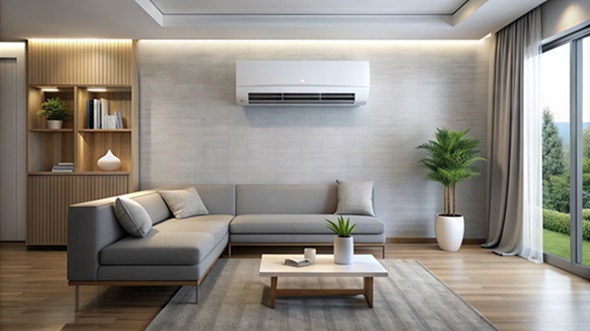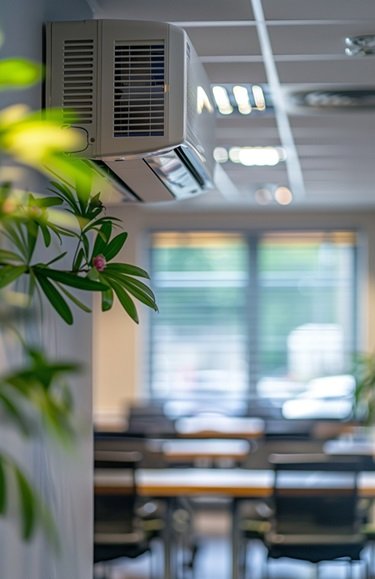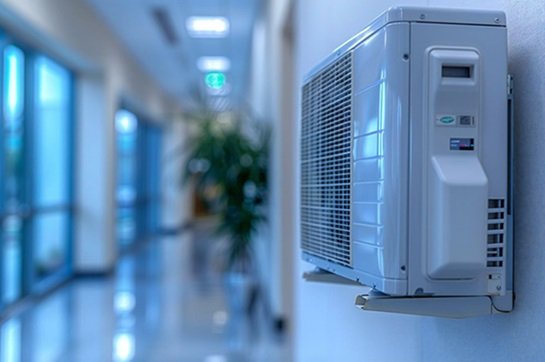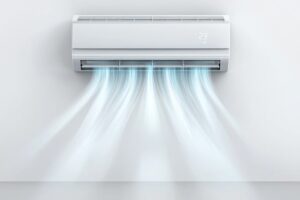What you need to know about ductless systems
November 2024
When it comes to heating and cooling your home, a ductless system offers an efficient, flexible, and modern solution. Whether you’re building a new space, upgrading an existing HVAC system, or adding comfort to a specific area, ductless systems—often referred to as mini-split systems—can be a game-changer. Here’s what you need to know about ductless systems and why they might be the right choice for your needs.
What Is a Ductless System?
A ductless system is a type of heating and cooling solution that doesn’t rely on traditional ductwork. Instead, it consists of two main components:
- An Indoor Unit: Mounted on a wall or ceiling, this unit delivers conditioned air directly into the room.
- An Outdoor Unit: Positioned outside your home, it houses the compressor and condenser.
These components are connected via refrigerant lines, which are small and minimally invasive to install.
Key Benefits of Ductless Systems

1. Energy Efficiency
One of the standout features of ductless systems is their energy efficiency. Traditional HVAC systems can lose up to 30% of energy through ductwork leaks. Without ducts, mini-splits avoid this loss, making them an eco-friendly and cost-effective option.
2. Zoning Flexibility
Ductless systems allow you to create zones in your home. Each indoor unit can be controlled independently, so you can adjust the temperature in one room without affecting others. This is ideal for families with differing comfort preferences or for spaces that are not used frequently.
3. Easy Installation
Unlike traditional HVAC systems, installing a ductless system is relatively simple and quick. There’s no need to tear down walls or add ductwork. The installation process often takes just a day or two.
4. Improved Indoor Air Quality
Ductwork in traditional systems can collect dust, mold, and other allergens over time. Since ductless systems bypass this entirely, they can contribute to cleaner, healthier indoor air.
5. Versatile Applications
Ductless systems are perfect for a variety of settings, including:
- Older homes without existing ductwork
- Additions or converted spaces, like garages and basements
- Homes with hot or cold spots
- Eco-friendly or net-zero energy homes



Potential Drawbacks
While ductless systems have many advantages, they’re not without a few considerations:
- Initial Cost: The upfront cost of purchasing and installing a ductless system can be higher than some traditional HVAC options. However, long-term energy savings often offset this.
- Aesthetic Impact: Indoor units are visible on walls or ceilings, which may not appeal to everyone’s design preferences.
- Maintenance: Regular cleaning of filters is necessary to maintain efficiency and air quality.
Is a Ductless System Right for You?
Contact Bertons Air Conditioning and Heating to receive expert advice to learn more about ductless systems or to obtain expert service today!




